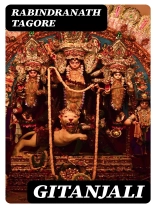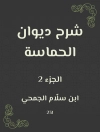Gitanjali, a seminal work by Rabindranath Tagore, is a collection of poignant poems that explore the themes of spirituality, devotion, and the existential relationship between the self and the divine. Tagore’s literary style, characterized by its lyrical beauty and profound depth, reflects the influence of Indian classical music and folk traditions, seamlessly merging them into a universal quest for truth. Published in 1910, Gitanjali is not only a testament to Tagore’s mastery of language but also a landmark in the literary context of the Bengali Renaissance, which sought to fuse Eastern and Western ideals of art and philosophy. Rabindranath Tagore, the first non-European Nobel laureate in Literature, was deeply influenced by his upbringing in a family renowned for its contributions to the arts. His formative years were marked by a quest for spiritual understanding and an exploration of the human condition, elements that permeate Gitanjali. The socio-political landscape of early 20th-century India also shaped his perspectives, prompting him to weave themes of nationalism and ethical consciousness into his work, thus enriching its resonance. I highly recommend Gitanjali to readers seeking a profound exploration of spirituality and a deeper understanding of the self through poetic expression. Tagore’s verses invite contemplation and evoke emotion, making this work a timeless masterpiece that continues to inspire and resonate with audiences across cultures.
Yazar hakkında
Rabindranath Tagore (1861–1941), a polymath of Indian literature and the composer of the Indian national anthem, became the first non-European to be awarded the Nobel Prize for Literature in 1913. His eminent work ‘Gitanjali, ‘ an anthology of poems, is a sublime expression of spiritual transcendence and a seminal work in modern Indian literature. Tagore’s literary style weaves classical with contemporary, the local with the transnational, suffusing his verse with a lyrical universality that has resonated globally. Renowned for his poetic thought, he delved deeply into the human experience, infusing his writing with philosophical inquiry, a profound empathy for the natural world, and consideration for the socio-cultural dynamism of his time. His substantial literary output includes dramas, essays, short stories, travelogues, and over a thousand poems. Catering not only to intellectual elites but also to the common people, Tagore’s legacy is evident in the vast canon of his works that continue to inspire and provoke thought across diverse cultures. The profoundness of Tagore’s influence extends beyond literature into the very essence of social reforms and the freedom movement of India. International recognition notwithstanding, Tagore’s voice remains a beacon in Bengali literature, where he is affectionately called ‘Bishwakobi, ‘ the World Poet.












